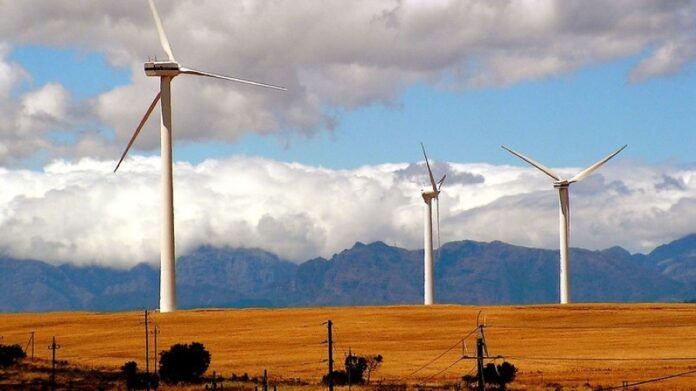A recent study by Udeagha, M. C., & Ngepah, N. (2024) titled “A Roadmap to a Green Economy in South Africa: Modeling Technological Innovation and Energy Consumption in the Novel Dynamic ARDL Simulations Framework” published in Cogent Economics & Finance, show that technological innovation is found to contribute to the reduction of CO2 emissions in South Africa in both the short and long terms
“
Technological innovation significantly reduces CO2 emissions in South Africa, highlighting its crucial role in sustainable environmental management.– Udeagha, M. C., & Ngepah, N. 2024
The study focuses on the critical role of technological innovation in mitigating CO2 emissions in South Africa. Utilizing a dynamic ARDL (Autoregressive Distributed Lag) simulations framework, the research explores how advancements in technology can contribute to reducing greenhouse gas emissions. The study highlights that technological progress, particularly in energy-related sectors, is essential for achieving significant reductions in CO2 emissions. In addition to technological innovation, the study examines the impact of energy consumption on environmental quality. It considers how various forms of energy use, both renewable and non-renewable, influence CO2 emissions. The analysis extends to the role of foreign direct investment (FDI) and industrial value-added activities in shaping environmental outcomes. By understanding the interplay between these factors, the study provides insights into how energy consumption patterns affect ecological integrity.
How the Study was Conducted
The study employed a novel dynamic autoregressive distributed lag (DARDL) simulations framework. This advanced technique models and forecasts changes in data, assessing short-term and long-term relationships between variables. Additionally, the research used frequency domain causality (FDC) to explore causality over various time scales. Structural breaks were considered, accounting for their influence on relationships between technological advancement, energy usage, and CO2 emissions. A novel measure of trade openness was introduced to investigate the relationship between innovation and environmental quality while considering trade dimensions.
What the Authors Found
The authors found that technological innovation is found to contribute to the reduction of CO2 emissions in South Africa in both the short and long terms and energy consumption, foreign direct investment, and industrial value-added are identified as having negative impacts on environmental quality.
Why is this Important
Climate Action: By understanding the impact of technological innovation on CO2 emissions, policymakers can prioritize clean technology adoption. This contributes to global climate action and aligns with international agreements like the Paris Agreement.
Economic Growth and Environment: The Environmental Kuznets Curve (EKC) hypothesis suggests that economic growth initially harms the environment but eventually leads to improvements. South Africa can use this insight to balance economic development with environmental protection.
Policy Decisions: Policymakers can design targeted policies to promote clean energy, reduce energy consumption, and attract sustainable foreign investment. These decisions can shape South Africa’s environmental trajectory.
Trade and Environment: The study highlights the trade-off between trade openness and environmental quality. Policymakers must carefully manage trade policies to avoid becoming a “pollution haven.”
What the Authors Recommend
- The authors suggest that policymakers should prioritize investments in technological innovation. Encouraging research and development in clean energy technologies can lead to significant reductions in CO2 emissions.
- While economic growth is essential, it’s crucial to strike a balance between development and environmental protection. The authors posit that policies should consider the long-term impact on ecological integrity.
- The study advocates implementing energy efficiency measures across sectors. This includes promoting energy-saving practices, adopting renewable energy sources, and incentivizing energy-efficient technologies.
- Be cautious about trade openness. While trade can boost economic growth, it’s essential to prevent becoming a “pollution haven.” Trade policies should align with environmental goals.
- In addition, the authors recommend Raising awareness about the importance of sustainable practices among businesses, communities, and individuals. Education and outreach can drive positive behavioral changes.
In conclusion, the study underscores the pivotal role of technological innovation in South Africa’s efforts to mitigate CO2 emissions. By promoting clean energy technologies and balancing economic growth with environmental protection, policymakers can chart a sustainable path forward. It is imperative to implement targeted policies that foster energy efficiency, attract sustainable investments, and manage trade-offs carefully to safeguard environmental integrity while advancing national development goals. Awareness and education on sustainable practices will further bolster these efforts, ensuring a harmonious balance between economic prosperity and environmental stewardship in South Africa.
















 The African Research (AR) Index is a comprehensive scholarly directory and database focused explicitly on journal publishers that publish and disseminate African research.
The African Research (AR) Index is a comprehensive scholarly directory and database focused explicitly on journal publishers that publish and disseminate African research.

